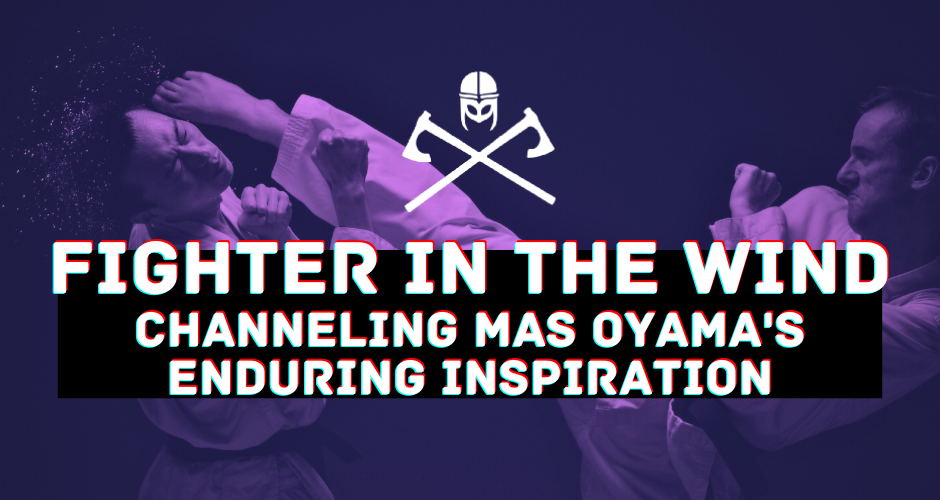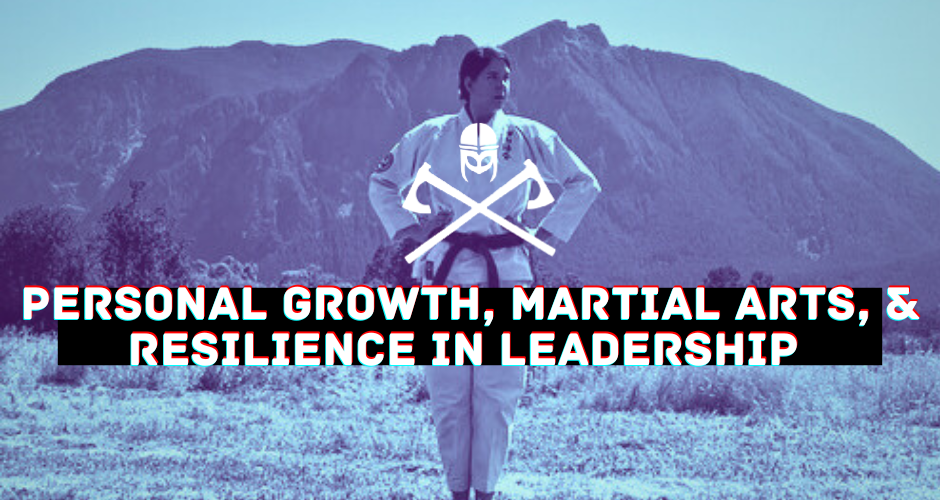
by Gene Crawford | Feb 10, 2025 | Podcast
After experiencing the transformative power of martial arts firsthand, I couldn’t wait to share the film “Fighter in the Wind” with you. The movie portrays how Mas Oyama’s indomitable spirit and quest for strength can inspire us all. We dissect how the movie reflects his resilience amidst discrimination and personal battles, a narrative that speaks to the warrior ethos of perseverance and self-improvement. The blend of historical accuracy and mythological flair typical of martial arts cinema adds a really fun layer to Oyama’s legacyr.
Beyond the cinematic portrayal, let’s delve into the essence of building a warrior mindset. By drawing wisdom from iconic figures like Rocky and David Goggins, discussing concepts like shugyo—intense training that shapes mental and spiritual fortitude. It’s about finding that delicate balance: pushing your limits without veering into excessive performances. Resilience and composure in adversity aren’t just innate talents but skills to be trained and honed. Embrace the path of personal growth, whether through martial arts or everyday challenges, and unlock the grace and determination to conquer life’s obstacles. Join us on a journey to harness the true spirit of a warrior, becoming a better version of yourself with each passing day.
You can watch the movie on Youtube for free here!
(more…)

by Gene Crawford | Feb 3, 2025 | Podcast
Unlock the secrets of mastering your mindset in this episode, where ancient wisdom meets modern challenges. We explore how traditional martial arts and stoic philosophy, with insights from masters like Masakai Ikemiyagi and Ryan Holiday, foster resilience and growth. Reflecting on Seneca’s teachings, we highlight the value of time, relationships, and intentional communication while sharing strategies to overcome fear and procrastination. Through personal anecdotes and listener stories, we discuss overcoming addiction, embracing spirituality, and building meaningful connections. With a critical look at online life advice, this episode offers reflection, practical tips, and inspiration to fuel your journey toward fulfillment.
(more…)

by Gene Crawford | Jan 13, 2025 | Podcast
Join Greg and I as we discuss the intertwined journey of life, business, and personal growth. We share lessons learned about taking responsibility for our choices, focusing on what we can control, and maintaining emotional balance—especially in challenging client interactions. Reflecting on early setbacks, we discuss the value of time as a finite resource, the importance of aligning work with personal values, and setting boundaries around less fulfilling commitments. Through stories of resilience, consistency, and integrity, we highlight the parallels between martial arts, entrepreneurship, and life, encouraging growth through presence, reflection, and intentional action.
(more…)

by Gene Crawford | Jan 6, 2025 | Podcast
Heather’s inspiring journey from a political newcomer to a 2x re-elected State House representative takes center stage in our latest episode. Hear firsthand how Heather’s perseverance and integrity have shaped her political career, offering valuable lessons on maintaining authenticity in a world often dominated by negativity. You’ll come away with insights into Heather’s unique campaign strategies that focused on accomplishments and future plans, proving that staying true to one’s principles can indeed pave the way to electoral success.
Our conversation also navigates the complex waters of maintaining genuine relationships in the digital age and the critical role of persistence. In a political landscape where perceptions can be as fleeting as a tweet, Heather shares her experience of building a reliable support system that stands through trials and triumphs alike. We tackle the pressing issues of public perception and the ever-present challenge of communicating intricate topics succinctly, reinforcing the idea that resilience often stems from embracing failures as opportunities to grow.
Reflecting on personal growth and resilience, Heather opens up about the transformative power of martial arts in her decision-making process, acting as a guide for justice and integrity. The discussion extends beyond politics, touching on the universal truths of overcoming setbacks and the strength found in sincere apologies. This episode promises to inspire with stories of personal evolution, highlighting the importance of self-reflection and the courage to navigate life’s complexities with honesty and humility.
(more…)

by Gene Crawford | Dec 16, 2024 | Podcast
Join us for an exhilarating conversation with Dan Jackson, fresh off his National Championship Grid win. We celebrate his team’s groundbreaking success as the first outside Florida to win since the league went national, reflecting on their five-year journey, the challenges they overcame, and the promising future of the sport of Grid. We also spotlight his remarkable comeback, insights from preseason camps, and the intense mental and physical demands of Grid and combat sports. Finally, we delve into CrossFit’s evolving landscape, athlete coaching dynamics, and the expanding culture of competitive fitness.
Dan Jackson – danejack61612
Head Coach – @atlantawild
Swim Coach – @kennesaw_masters_swim
Swim Coach – Direct Current Swimming
M. Ed. Coach Education and Athlete Development
(more…)





